|
English Proficiency
If your first language is not English, you must certify proficiency in English when you apply to UCLA. If you are admitted, you may also be required to confirm your proficiency upon arrival. Submit your scores from the Test of English as a Foreign Language (TOEFL) or the International English Language Testing System (IELTS) as part of your application. The TOEFL is administered by the Educational Testing Service (ETS). IELTS is administered by local IELTS test centers throughout the world. Consult IELTS for the test center nearest your home or university. Your test results can help you determine whether you are prepared to undertake graduate study conducted in English before making extensive plans for graduate study in the U.S. Special note: If you studied at a satellite campus located in a country where English is not the primary spoken language of daily life, be sure to submit recent TOEFL or IELTS scores. Citizenship, U.S. residence and/or work experience are not substitutes for meeting the requirement. Meeting UCLA’s English Language RequirementDo you hold a bachelor’s or higher degree from a university located in the United States or in another country in which English is both the primary spoken language of daily life (e.g., Australia, Barbados, Canada, Ireland, Jamaica, New Zealand, United Kingdom) and the medium of instruction? Have you completed at least two years of full-time study at such an institution? If so, you are exempted from both the TOEFL/IELTS requirement and the English as a Second Language Placement Examination (ESLPE). Please be sure to include such information in your application. Minimum IELTS & TOEFL ScoresYour IELTS overall band score should be at least 7.0. 7.0 is the minimum required. Your TOEFL score on the paper and pencil test must be at least 560 or at least 87 on the internet-based test. These scores represent the minimum required for applicants to graduate programs at UCLA. Some of our majors may require higher scores as noted in Departmental Information. For the internet-based TOEFL (TOEFL iBT), the following are the expected scores for each section:
Your application is not complete without the test scores. TOEFL scores should be sent to your major department. Be sure to list the TOEFL institution code for UCLA 4837. Ask IELTS to send your scores to your major department and the Graduate Division. Foreign language ability can fade quickly, so please note that TOEFL and IELTS scores are considered valid for only two years. The scores must be valid at the time you submit your application. If you took the examination multiple times, only the most recent score is considered. ESLPE for Admitted ApplicantsIf you are an admitted applicant who has not met UCLA’s English language requirement for waiving the English Requirements for this examination, you must, upon arrival at UCLA, take the UCLA English as a Second Language Placement Examination (ESLPE). The ESLPE is an English diagnostic test. Depending on your results on the ESLPE, you may be required to complete English as a Second Language courses beginning in your first term at UCLA. If English courses are required, you should enroll in them right away, and you should also anticipate spending a longer period of time at the University. Admission is canceled for those who do not pass the ESLPE. If you achieved a score of 100 or higher on the TOEFL iBT, or 7.5 or higher on the IELTS, the ESLPE requirement is waived! If you scored below 100 on the TOEFL iBT, or below 7.5 on the IELTS, you must sit for the ESLPE upon arrival at UCLA and immediately enroll in any assigned English as a Second Language courses. Test of Oral Proficiency (TOP)Eligibility for teaching assistantships at UCLA, for admitted applicants whose first language is not English, depends upon passing, upon arrival at UCLA, the Test of Oral Proficiency (TOP). TOP is UCLA’s own examination designed specifically for screening the spoken English skills of international students before their appointment as teaching assistants. A clear pass of 7.1 or higher is needed on the TOP. A provisional pass of 6.4 to 7 permits those who are concurrently enrolled in English as a Second Language 38A, 38B, and 38C, or 39A, 39B, and 39C to accept a teaching assistantship; eligibility for further teaching assistantships is contingent upon passing the course. Consult with your major department to determine if a higher score is required. Intensive English ProgramAn intensive English program is offered through the UCLA Extension division. Information and applications are available at American Language Center. Source: https://grad.ucla.edu
3 Comments
Information about obtaining the I-20 Certificate of Eligibility will be made available to admitted applicants by the Dashew Center for International Students and Scholars. Admitted applicants requiring a DS2019 for a J1 visa should contact the program to which they have been admitted to submit the request.
U.S. immigration law requires that international applicants, if admitted, show documented evidence that sufficient funds to cover all tuition, fees, transportation, and living expenses are available for the first year of their studies at UCLA. This must be proved before a Certificate of Eligibility (I-20 or DS2019) for a visa can be issued. The I-20 form is issued to admitted applicants who apply, and are qualified, for an F-1 (student) visa, after they submit a Statement of Intent to Register accepting admission at UCLA. The DS2019 form is issued to admitted applicants who apply, and are qualified for, a J-1 visa, after they submit a Statement of Intent to Register accepting admission at UCLA. J-1 (exchange visitor) status is appropriate for students whose programs of study are substantially funded by the U.S. government, their home government, an international or nonprofit organization, or UCLA. Since the University cannot assume financial responsibility for its students, U.S. government regulations require that we be satisfied that entering students have sufficient funds to meet all expenses while at UCLA. The budget for tuition, fees and living expenses for nine months beginning with the Fall 2014 was in excess of $57,000 for a graduate academic program; the budget for professional programs may be considerably more than that amount. Be aware that all fees and expenses are subject to change; it is best to plan to have additional funding well beyond the minimum. Unless you have been officially notified in writing of an award from the department or the Graduate Division, do not expect any financial support from UCLA. Teaching assistantships, graduate student research appointments, fellowships and stipends, as well as tuition fellowships, are not guaranteed for the full academic year or for subsequent years of study, unless stated in writing. A student on a student visa cannot accept off-campus employment at any time during the first year in the U.S. Spouses of F-1 visa holders (F-2) are not allowed to work under any circumstances. Students transferring from another U.S. college or university must request a transfer to UCLA from their current school, and must also complete Immigration and Naturalization Service requirements before the end of the second week of their first term at UCLA. To comply, students must report to the Dashew Center and bring a letter from the former school indicating that the student maintained visa status and is eligible to transfer to UCLA. Source: https://grad.ucla.edu The University of California has been honored with the 2017 Edmund G. “Pat” Brown Award in recognition of the UC system’s legacy of environmental and economic leadership. The award is presented annually by the California Council for Environmental and Economic Balance (CCEEB), a nonpartisan coalition of business, labor and public leaders.
This Tuesday (July 18), UC President Janet Napolitano delivered the keynote address at CCEEB’s annual policy conference in Olympic Valley, Calif., before accepting the award on behalf of the UC system. In her remarks, Napolitano highlighted how UC faculty members and researchers are working to better understand climate change and to combat its damaging effects — from developing greenhouses that use less energy, to exploring the potential of renewable gas as a clean energy source. “I am thrilled that the ongoing efforts of UC faculty, researchers, students and staff to protect the environment are being recognized through the Pat Brown Award,” Napolitano said. “California has shown that we don’t have to choose between environmental stewardship and economic vitality. As California’s public research university, UC is at the forefront of research innovation and operational reforms that thoughtfully balance these priorities.” In announcing UC as the latest recipient of the award, CCEEB President Gerald Secundy praised the system for its role in shaping environmental policies and developing technologies that fuel clean energy innovation on a local, national and international level. “It is no secret that the state of California relies on the work of the University of California for developing and implementing environmental policies and regulations,” Secundy said. “Look at each campus; you’ll see world-class research and ideas being developed by UC faculty, students and staff. California businesses are able to leverage this innovation in cleaner technologies and best practices, just like state and local agencies learn from the university’s forward policy thinking.” UC’s longstanding commitment to sustainability inspired Napolitano to launch the Carbon Neutrality Initiative in 2013, committing UC to become carbon neutral in its operations by 2025. UC has reduced its systemwide emissions by 15 percent since 2009 through energy efficiency gains and the adoption of on-campus solar and renewables; more than 40 megawatts of renewable energy are now being generated on the UC campuses themselves, enough energy to power more than 10,000 homes for a year. And in 2016, UC made the largest solar purchase ever made by a U.S. university. The award is named after the late Governor Edmund G. Brown, who signed the California Master Plan for Higher Education into law in 1960 and who served as the Council’s founding chairman. Previous recipients include UCLA professor and California Air Resources Board Chair Mary Nichols, state Senator Fran Pavley and the late Tom Graff of the Environmental Defense Fund. Source: www.universityofcalifornia.edu This year, the University of California has done away with the traditional personal statement, and has developed a list of eight “personal insight” questions. Applicants are asked to choose four of the eight questions, and respond in 350 words or less.
General advice on these questions: • Read over all eight questions and as you read, observe which ones are immediately appealing and which ones make you internally groan. Highlight the ones you like, eliminate the ones you don’t. This may be a very simple exercise for some, more complicated for others, but your gut reaction is usually the one to follow. There are no better or worse questions to answer, they are all given equal weight with the admissions committee, so choose the ones with which you are most comfortable and that you are most excited to answer. • Write your draft in a Word or other document before entering it into the online application. You do not want to have to worry about accidentally sending responses before they are polished and ready for submission. • The more specific and detailed you are in your writing, the better. Saying, “I served on numerous committees and participated in many community service activities” is not persuasive nor compelling. Use proper nouns, but not acronyms, and let your reader know exactly what you did, with whom, and why. • Remember that these are called “personal insight” questions, with the emphasis on “personal.” The admissions committee really wants to get to know you outside of your GPA and test scores, and this is your opportunity to show them who you really are and what you will bring to their school. • Even if Berkeley is your very first choice, DO NOT TALK ABOUT THAT HERE. These questions and responses will go to every campus to which you are applying. • Be sure to read the information on the “Additional Comments” section of the web site. This section will not be applicable to every candidate, so review this information carefully. • Make sure that you review the University of California website for their specific instructions and advice. They have well defined and outlined information, as well as a Guide for Freshman Applicants that you can download from their web site. Use these tools to make sure you are giving them what they are looking for. The eight questions and tips on how to answer them: 1. Describe an example of your leadership experience in which you have positively influenced others, helped resolve disputes, or contributed to group efforts over time. If you have held office in a school organization and have an official title, be sure to include that in your answer. However, not all leadership experiences come with a fancy title. Perhaps you served as a camp counselor at science camp, or volunteered as a reading tutor to underserved children. With your leadership, the experience of those you served was greatly improved and enhanced. Leaders come in many different iterations, so think about how you have served in this kind of a role. Specific examples of how you took on a leadership role will help bring this answer to life. 2. Every person has a creative side, and it can be expressed in many ways: problem solving, original and innovative thinking, and artistically, to name a few. Describe how you express your creative side. This one can feel tricky to someone who is not a playwright or painter or musician, but read the description carefully. If you are someone who can brainstorm and always come up with a solution to a problem, or have been called a square peg in a round hole more than once, then this question may appeal to you. Think about how you use original and creative thinking to tackle problems or view an issue. Of course, if you are artistically inclined, this will be an obvious question for you. Just remember to write about why your art is important to you, rather than the cut and dry information about holding first chair in the violin section of the school orchestra. How does playing the violin make you feel? This is what the admissions committee is interested in hearing about. 3. What would you say is your greatest talent or skill? How have you developed and demonstrated that talent over time? If you are Katie Ledecky, Steph Curry, or Adele, this is an easy, slam dunk question. But remember that talents and skills come in all shapes and sizes, not just in the pool, on the court, or in the recording studio. Perhaps you are known as the mediator in your group of friends, or the person at work who is always the first one everyone calls when another employee calls in sick. Describe the skill or talent that you believe is your signature trait, talk about why it is important, how you have honed that skill or talent, and how you plan to utilize this skill in the future, especially in college. 4. Describe how you have taken advantage of a significant educational opportunity or worked to overcome an educational barrier you have faced. Perhaps you are dyslexic, have attention deficit challenges, or moved schools three times in four years. These are all educational barriers with which you have had to contend. On the other hand, maybe you have had the opportunity to travel abroad in the summer, attended a summer school session on a college campus, or took an accelerated class at a community college while still in high school. All of these experiences fall under the umbrella of this question. If you are planning to talk about an educational barrier, be specific without seeming whiny. You want to demonstrate your strength in overcoming this barrier rather than appearing to be seeking sympathy. If you plan to write about an exceptional educational opportunity, recognize that these opportunities are not available to all applicants for a variety of reasons. You want to talk about the depth and richness of the experience, what you gleaned from this opportunity, and how you will use the experience as a launchpad for your higher education plans and goals. 5. Describe the most significant challenge you have faced and the steps you have taken to overcome this challenge. How has this challenge affected your academic achievement? Everyone has challenges, whether that appears to be the case to the outside world or not. The important thing is how one reacts to the challenge, rather than the challenge itself. Use this question to demonstrate how you have handled a difficult situation and risen above the obstacles to achieve your goals. There was a story recently about students in California who were more or less homeless, but were finding ways to get to class and stay on their educational path. This is an extreme situation, but perhaps your father lost his job and you had to switch from private to public school. Your mother may have been diagnosed with breast cancer and spent a year in treatment. Maybe you have had to work to help support your family. Perhaps you are a student athlete, and have had to contend with a serious injury that has set you back from achieving your goals. All of these things will affect your academic achievement. Be honest about the situation, and about your response to the challenge. There is much to be learned about people and how they react in times of crisis. Don’t be afraid to tell your story. 6. Describe your favorite academic subject and explain how it has influenced you. This is a question that almost every applicant should be able to answer with passion and enthusiasm. Do not feel that there is a right answer – a STEM subject, for example – just think about what class you look forward to most every day, and write about that. If there is a specific teacher who has brought this subject to life for you, include that as an example of the influence that the subject matter has had on you. If you love history and know that you want to become a college professor as a result, talk about that. If your economics class has made you consider a career in finance or with the World Bank, talk about that. Your response doesn’t have to be career focused, just make sure you address the “how it has influenced you” part of the question and not just a description of your favorite subject. Make sure it is an academic subject and not an elective like photography or PE. 7. What have you done to make your school or your community a better place? Concrete, specific examples with quantifiable data will make this a compelling answer. “I raised $3,000 for food donations to improve the lives of children in Santa Clara County during the holidays.” “I helped bring a motivational speaker to my campus through my leadership class. The student body of more than 2,000 benefitted from this presentation, which was demonstrated in the overwhelmingly positive feedback we received in a survey we conducted after the event.” “I started an initiative to bring healthier, more nutritious food options to the school cafeteria. My efforts in working with the school administration and our food service resulted in four new salads and three new vegetarian dishes being offered to students.” This is a very straightforward question. 8. What is the one thing that you think sets you apart from other candidates applying to the University of California? “Be yourself, everyone else is taken.” College campuses are made up of a diverse and exciting student population, enriched by the uniqueness of each individual. Use this question to talk about what makes you, you. This could mean you have a unique perspective on life because you are trilingual and have family in Europe that you see every summer. Or your family receives food stamps and you have a unique perspective on what it means to live below the poverty line. You had a serious, life threatening illness as a child, and know what it means to face the reality of your own mortality. You raise dogs for the Iditarod. You have gotten up every morning for the past five years and brought your neighbor’s newspaper to her door and then walked her dog for her. There are things about you that will not make their way into any of the previous seven answers. Use this question to talk about that part of your life here. Source: blog.accepted.com Health professions schools are interested in receiving letters of recommendation from a diverse group of people who know you well and are supportive of your application and career choice. For admissions committees, the most useful letters are those that reflect real knowledge of you and your performance, whether in the classroom, in the laboratory or in a clinical or volunteer setting. Letters from family members or from people an applicant is having a romantic relationship with are not welcome and are considered inappropriate.
Successful applicants to health professions schools typically submit four to seven letters of recommendation as part of their application packet. Here is a generic list of five to six letters that often serves as a good starting point for considering appropriate letter writers (substitutions, deletions and additions are allowed):
When deciding whom to ask to write letters on your behalf, you should consider a diverse set of people who know you well and who will be supportive of your application. Also keep in mind that letters of recommendation provide a great way for admissions committees to get firsthand reports from people who know you from the many different areas of your life – not just professors who have taught you in the classroom. As you think about whom to ask to write a letter for you, seek out the people who are the most senior (i.e., tenured faculty or attending physicians) among the diverse group of potential letter writers you are considering. Letters should be requested at least 1.5 – 2 months prior to the desired arrival date in most circumstances. When asking for a letter of recommendation, be sure to ask if the writer can prepare a strong letter of support. Applicants must complete and distribute an appropriate Letter of Recommendation Waiver Form*. As specified on the waiver form, letters should arrive in the Health Professions office with a signed electronic or physical copy of the waiver form, two weeks prior to a scheduled committee meeting. Letters of recommendation may be sent by email, fax, US Mail or a courier service. In summary, applicants should provide the letter writer with:
Applicants who have a committee meeting will typically list one “letter” in their application materials. This will be a “committee letter packet,” and it should be listed with Dr. D'Antonio's contact information. The Carnegie Mellon Health Professions Program will upload this packet to the application services or schools specified by the applicant as soon as it is ready and the applicant will receive an email confirmation when this has been done. This packet consists of the committee letter of recommendation and all of the original individual letters of recommendation the applicant is using for the application. Applicants who do not wish to have a committee letter may instead ask the Health Professions Program to upload a letter packet to the application services or schools specified by the applicant. This simply includes all of the individual letters of recommendation received on behalf of the applicant. Credit: CMU Do…
Don't…
The personal statement is a crucial part of university applications in the UK. It’s your chance to show what makes you unique, besides your birth name and UCAS ID. In just 4,000 characters you have to convince your chosen university that you are the best applicant, and that they should make you an offer immediately. These 4,000 characters are your only chance, so your personal statement needs to be good. Really good. Here are some tips on how to write a truly outstanding piece.
1. Make a draft without a character counter. When I started writing, I thought it would be a good idea to start with the character counter turned on, so I wouldn’t go over the 4,000 limit. First mistake… After 3,500 characters I started panicking because I was only halfway through my story. So I turned off the character counter and continued writing. At the end I had 7,000 characters instead of 4,000, but I had written down everything I wanted to say, and I only had to delete some words and compress it. That’s far easier than inserting more ideas while keeping it under 4,000 characters at the same time. By the way, the final version was 3,999 characters! 2. Take your time. Do not rush it. A superb personal statement will not be ready in a couple of hours. Or even a couple of days. It took me more than a month to complete the version I finally sent in. Sometimes it’s worth taking a break for a few days, then coming back to it afresh. 3. Find the perfect words and expressions. It sounds more professional and elegant if you use ‘accomplish’ rather than ‘do’, or ‘presume’ rather than ‘think’. As an international applicant, it was even more difficult since English is not my native language, but there are some useful translation and synonym programs on the internet to help with this. I used Google Translate primarily, which includes a great deal of synonyms if you translate words from English to another language. But this synonym thing should be carefully performed, as using too many fancy words could make your statement sound overdone and difficult to read. 4. Concentrate on your strengths. In these 4,000 characters you are trying to sell yourself to the university. A perfect product proposer is all about how great that thing is, and it’s the same with your personal statement. You should write about your experiences, your knowledge and your future plans. You should NOT write, “I wanted to learn Spanish but I gave it up after a week” or “I am not very good at maths, but I think this is understandable since I hate it so much.” 5. Find the perfect opening sentence Starting with something funny, interesting, unusual or surprising will give a good first impression. But do not try to squeeze something funny out of your brain; that is useless. The perfect opening sentence will just hit you in a random moment, when you have already worked hours and hours on your personal statement. So, just wait and do not overthink it. 6. Make it your own work, voice and ideas. I suggest that you should not read any other personal statements before writing the first few drafts of yours. It will simply give you a false idea. You are most definitely unique, and it is worthless to follow some set rules or patterns, or someone else’s ideas. After all, this is about you, not somebody else. 7. Be honest. Do not write that you are fluent in Spanish if you can only say “I love you” in Spanish. Do not write that you are good at problem-solving if your sole example is a trick of carrying five bottles in one hand. If you are good, you are good the way you are. There is no need to create a false image, and indeed the truth will always come out sooner or later. 8. Get someone to proofread your statement. Your parents, your teachers, your friends, your enemies… The more people you show it to, the more feedback you will get, and the better the final version will be. Of course, some advice will be better and some less so, but it is easier to ask many people first, and differentiate later. 9. Read it out loud many times. It helped me a lot when I read my personal statement out to my family and friends. When you are writing it sentence by sentence, you might not realize that there is no cohesion between your paragraphs. But when you read it out, all the vague parts will magically appear, so you can correct them. 10. Once you submit your university application, stop reading it! I’d recommend not reading it for a few months once you’ve sent it in. You might feel it’s not as good as you thought previously, but this is normal. Waiting to hear from universities is the worst part of the whole process (even worse than completing the application form…). After you get the offer you wanted (which you will surely get, I know!), you will know that your application was just perfect the way you sent it. To sum up, be yourself and write honestly about your experiences. Use your own voice, because that is who you are, and the universities are interested in you, not an ideal text based on a “how to write a personal statement” article… Credit: TopUniversity No two personal statements should be the same (the clue is in the personal!). But there ARE certain additions that will grab the attention of the admissions tutor reading it...
Firstly, what is a personal statement? A personal statement is an extended essay about yourself and a key part of your Ucas application. Know this already? Skip to the tips... While many candidates may apply with the same grades as you, they aren’t you as a person, with your skills, experiences and thoughts. You need to stand out as a real person to an admissions tutor, as opposed to one of the many applicant numbers that will pass before their eyes! Your personal statement is where you can distinguish yourself from other candidates; fill in the picture a tutor has of you in their head; and leave a real impression that makes them want to meet you or offer you a place! Remember that what you write could be used to decide between you and another candidate for the final spot on that dream course. So what should go in a personal statement? 1. Explain your reasons for wanting to study the course What motivates you to take this course further at a university level? Mention how your interest developed, what you have done to pursue it or how you’ve drawn inspiration from your current studies. Or, just demonstrate your enthusiasm for it. If you want to get something specific out of it, provided it's reasonable, say so. 2. Explain how you're right for the course Provide evidence that you fit the bill to show that not only do you meet the selection criteria; but also that you’ve researched the course (or profession) and understand what studying the <a data-cke-saved-href=">subject at university level will involve. Also show that you're prepared for this. 3. Say what you’ve done outside the classroom If possible, outline how you’ve pursued your interest in your chosen subject beyond your current syllabus. For example, talk about any further reading you’ve done around the subject and give your critical views or reflective opinions about it (don't just write a list). This could be from books, quality newspapers, websites, periodicals or scientific journals or from films, documentaries, blogs, radio programmes, podcasts, attending public lectures and so on. Try to avoid mentioning the wider reading that everyone else is doing. 4. Why it’s relevant to your course... Reflect on your experiences, explaining what you’ve learned from them or how they’ve helped develop your interest in the subject – it could be work experience, volunteering, a university taster session or outreach programme, summer schools, museum, gallery or theatre visits, archaeological digs, visits to the local courts, travel, competitions or a maths challenge. 5. … And relevant to your chosen career Reflecting on relevant experience or observations will be essential for some professional courses where, in effect, you’re applying for the career as well as the course 6. Can you demonstrate transferable skills? Yes, you can – and admissions tutors will want to hear about them! It could be your ability to work independently, teamwork, good time management, problem-solving, leadership, listening or organisational skills. 7. Expand on the most relevant ones But don’t simply list off the skills you think you have – think about which ones relate most readily to the course you’re applying to. Then demonstrate how you’ve developed, used and continued to strengthen these. Again, admissions tutors want to hear about specific examples, like:
8. Show that you’re a critical thinker University is all about being able to think independently and analytically so being able to demonstrate that you’re working like this already is a big plus point. Briefly explaining how one of your A-level subjects, a BTEC assignment or placement, or additional studies such as the Extended Project Qualification (EPQ) has made you think more critically could be a way of doing this. 9. What’s the long-term plan? Mention what your longer term goals are if you can do it in an interesting way and you’ve got a specific path in mind. If you do, then try and show a spark of individuality or imagination. If you’re not sure yet, just talk about what you’re looking forward to at uni and what you want to gain from your course or from university life. If you’re applying for deferred entry, do mention your gap year plans if you’ve made a firm decision to take a year out. Most courses are happy for you to take a gap year – but they will want to know how you plan to spend it. 10. Keep it positive It can be difficult to get started with your personal statement, but don’t panic. Start with your strengths, focus on your enthusiasm for the course and talk positively about yourself. Credit: whichuniversity Start early.
Give yourself plenty of time for preparation, careful composition and revisions. Write persuasively.Making a list of accomplishments, activities, awards or work will lessen the impact of your words. Expand on a topic by using specific, concrete examples to support the points you want to make. Use “I” statements.Talk about yourself so that we can get to know your personality, talents, accomplishments and potential for success on a UC campus. Use “I” and “my” statements in your responses. Proofread and edit.Although you will not be evaluated on grammar, spelling or sentence structure, you should proofread your work and make sure your writing is clear. Grammatical and spelling errors can be distracting to the reader and get in the way of what you’re trying to communicate. Solicit feedback.Your answers should reflect your own ideas and be written by you alone, but others — family, teachers and friends — can offer valuable suggestions. Ask advice of whomever you like, but do not plagiarize from sources in print or online and do not use anyone's published words but your own. Copy and paste.Once you are satisfied with your answers, save them in plain text (ASCII) and paste them into the space provided in the application. Proofread once more to make sure no odd characters or line breaks have appeared. Relax.This is one of many pieces of information we consider in reviewing your application. Your responses can only add value to the application. An admission decision will not be based on this section alone. Additional instructions for active military, veterans and dependentsBecause UC is interested in knowing about your or a family member's military service, you may wish to use this section to communicate the following:
Source: http://admission.universityofcalifornia.edu The college essay mattersYour essay reveals something important about you that your grades and test scores can't—your personality. It can give admission officers a sense of who you are, as well as showcasing your writing skills. Try these tips to craft your essay. Dr. Joyce V. Brown, Counseling Consultant, Chicago Public Schools 1. Get started by brainstorming Starting the essay can be the hardest part. Brainstorming about your personality traits and defining your strengths is a good place to begin. 2. Let your first draft flow After you've gathered your notes, create an outline to organize your essay and decide where you want examples to appear. Now you're ready to write your first draft. Don't worry about making it perfect. Just get your ideas flowing and your thoughts down on paper. You'll fix mistakes and improve the writing in later drafts. 3. Develop three essay parts
4. Be specific Give your essay focus by figuring out how the question relates to your personal qualities and then taking a specific angle. Make sure everything you write supports that viewpoint. Read about how some students conquered the essay. 5. Find a creative angle Katherine, a college freshman, had to describe why she would make a good Reed College student for that school's essay. "I am a huge fan of Beat Generation writers, and many of the West Coast Beat writers attended Reed," she says. "So I related my love for writing and the Beats to why I would be a great fit for the school." 6. Be honest The essay question might ask you about your best quality, an experience that shaped you or the reason you want to attend a certain college. Don't be tempted to write what you think the admission officers want to hear; answer the question honestly. 7. Get feedback Show your draft to family, friends or teachers. Ask if it makes sense and sounds like you. Consider their feedback and make changes, but keep your voice. High school senior Dana warns, "Make sure the essay is in your own voice. If at some point you read over your essay and you hear your mother's voice, something is wrong." 8. Proofread and make corrections
Read your essay over carefully to check for typos and spelling and grammar errors. It's best to ask someone who hasn't seen it yet to take a look as well. They're likely to see mistakes you won't catch. Source: bigfuture.collegeboard.org |
HoursM-F: 7am - 9pm
|
Telephone+1 613 981 1809
|
|
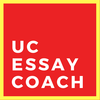
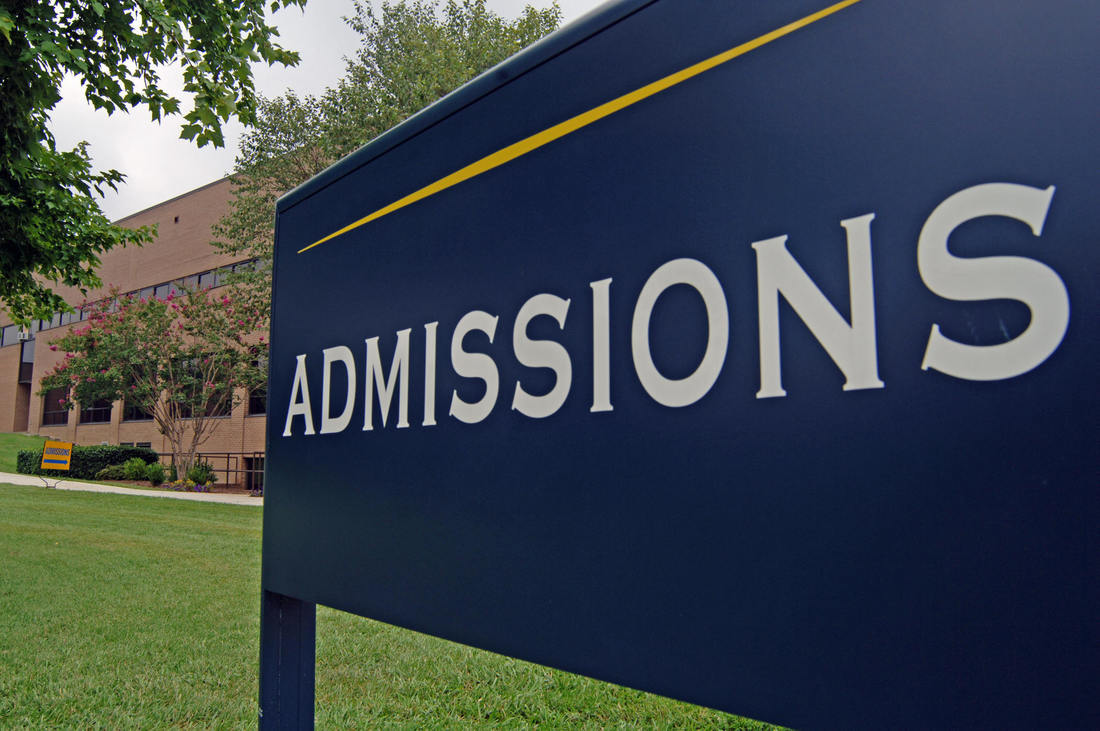
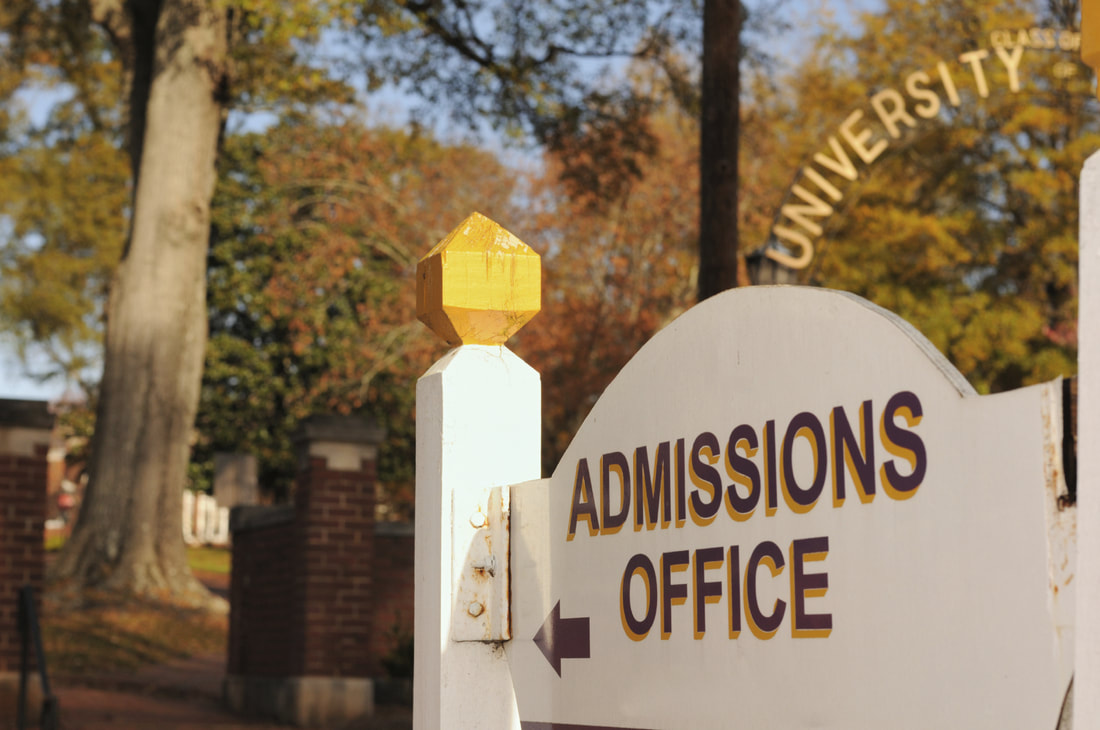
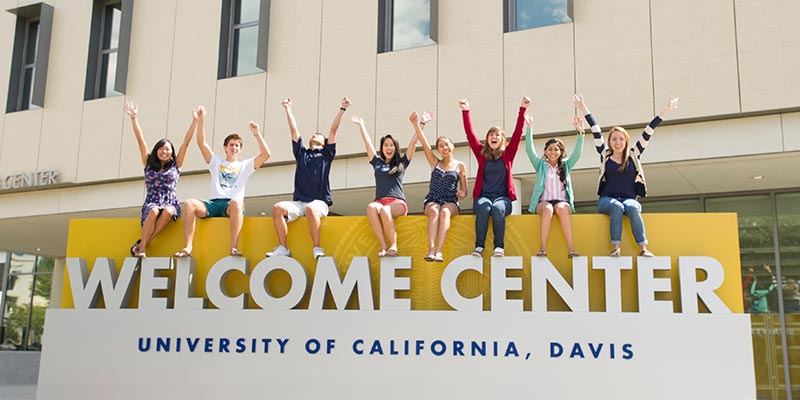
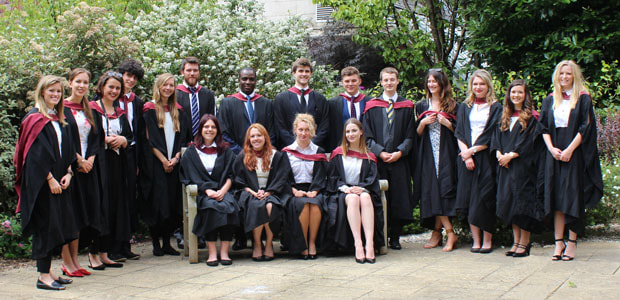


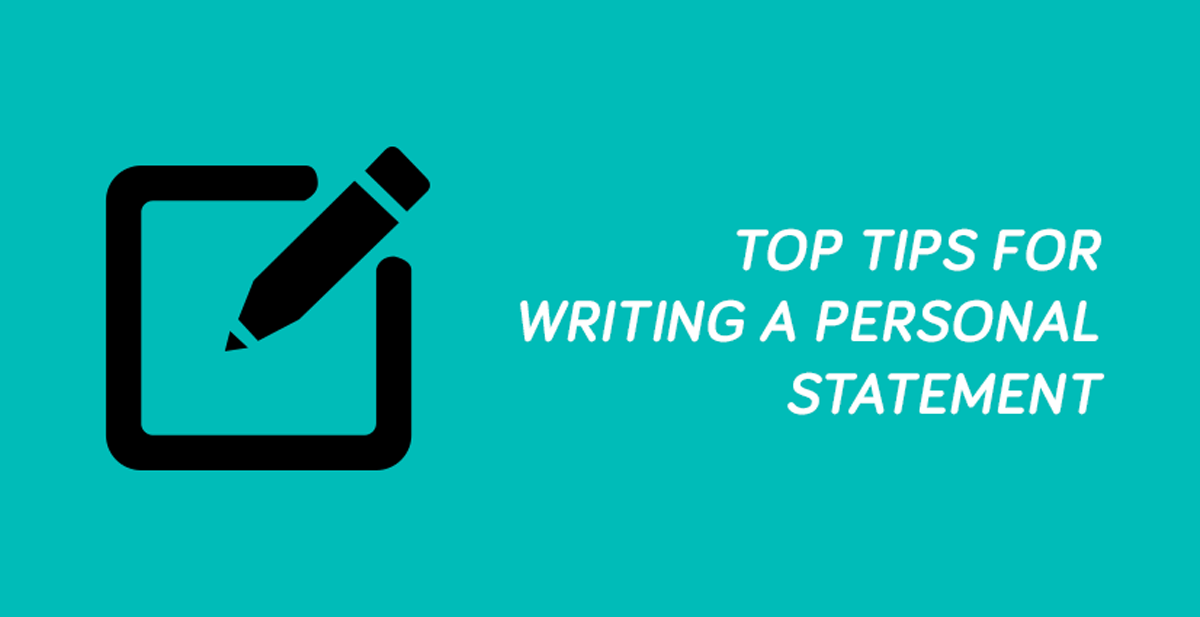
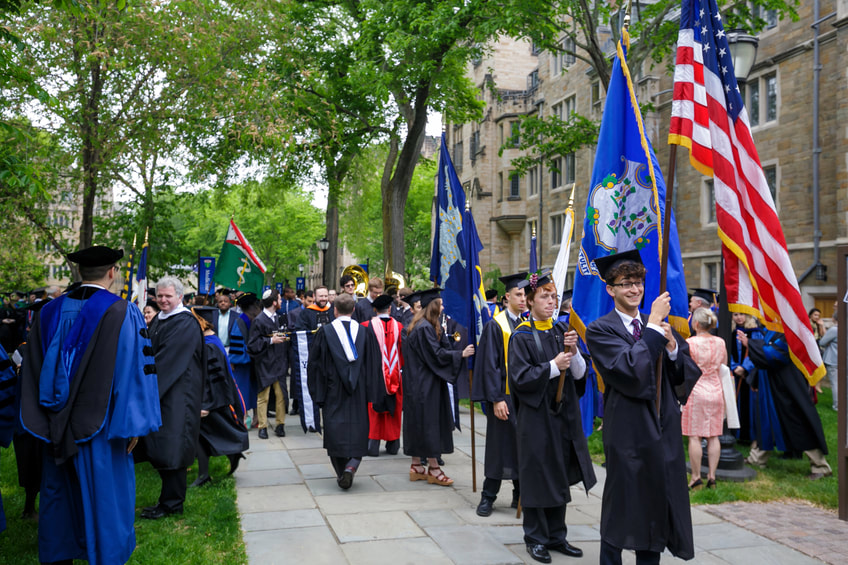





 RSS Feed
RSS Feed